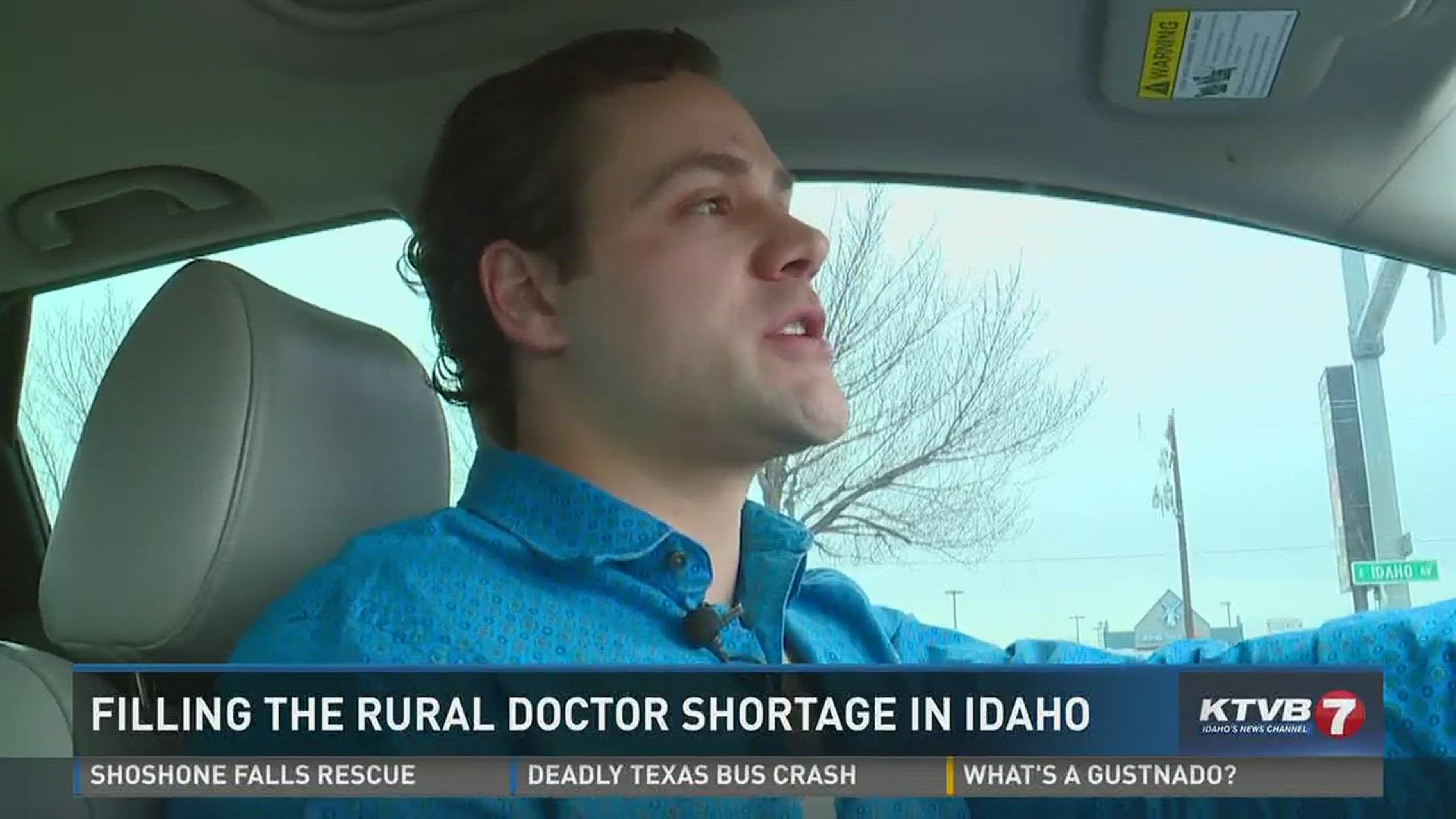FRUITLAND -- Idaho has suffered from a lack of doctors for years, especially in rural parts of the state.
Our shortage can be attributed to a number of things: from lower salaries, to a lack of a medical school, to the fact that Idaho is so rural, which makes it tough to recruit and retain physicians in those areas.
KTVB caught up with one doctor born and raised in a small farming community in Southwest Idaho who plans to permanently return to his roots in a few years when he's done with his residency and fellowship.
Dr. Billy Galligar is the face of what Idaho so desperately needs: more doctors studying, training, and then practicing medicine right here in the Gem State. Not only that, but practicing where it's hard for people to find the care they need in their own backyard.
From Fruitland, Galligar intends to give back to his small community of nearly 5,000 people.
"Usually the people who grew up in a small community they get it, they get the value, they have a sense of community and want to be a part of that again somewhere," Dr. Galligar said.
He joined the Marine Corps straight out of high school and then attended Treasure Valley Community College for a couple years, where he pursued his interest in nursing. He was working under a family friend at Heart N Home Hospice & Palliative Care in Fruitland when he decided to pursue a bachelor's degree in health sciences at Boise State University.
Through connections and a mentor, he was introduced to several different aspects in the medical field. So after a years-long journey of discovering what he wanted to do, he found his passion and decided to apply for medical school. He says he was accepted everywhere he applied and chose WWAMI Medical Educational Program, a partnership with the University of Washington School of Medicine and the states of Washington, Wyoming, Alaska, Montana and Idaho. The program allowed him to do some schooling and most of his training in the Gem State.
"It just seemed like the right choice," Galligar added. "It's not only the most affordable for me, but one of the highest-ranked public institutions in the country."
He says he always knew he wanted to come back and practice in Fruitland at Heart N Home as well as at a family practice somewhere in town, whether that takes the form of taking over a practice, partnering with a physician, or starting his own clinic.
His medical focus is a very general - and critical - one.
"Ultimately in a place like the 'Big Apple' of Idaho - Fruitland - that's what's needed the most; for not specialty care, but someone who can take care all of your needs and your family's needs and your mother's needs," Dr. Galligar said.
Galligar will be filling a need in his own hometown, knowing what people need most, and filling a void in Idaho. Data from the Association of American Medical Colleges puts Idaho 49th among states for physicians per population; 2014 data shows there are 190 active physicians per 100,000 population.
The vast majority of Idaho counties are federally designated as health professional shortage areas, according to the Idaho Department of Health and Welfare.
"If you don't have access then the quality and the cost are going to be affected," Galligar said.
He attributes the rural doctor shortage to a lot of factors: one, if you have a spouse and children, finding good jobs and schools might be tough. Idaho also lacks necessary training and residencies in specialty fields, and paying back student debt can be even more strenuous.
"The money in the small town isn't there," Galligar added. "A lot of people end up going to Oregon or Washington or other big places that can recruit with higher tuition reimbursement."
Through WWAMI, 50 percent of graduates return to Idaho, with many on the same track as Dr. Galligar; they are choosing a career in primary care medicine and practicing in areas where doctors are few and far between.
To encourage more doctors to work in Idaho, the state subsidizes the cost of attending University of Washington and University of Utah's medical schools for a total of 50 Idahoans a year. In addition, Idaho has two incentive programs in place: the Rural Healthcare Access Program and Rural Physician Incentive Program.

